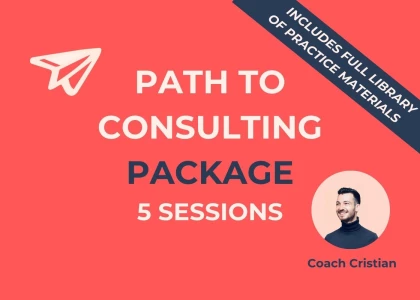I've been practicing cases for the past 20 days, 2 cases per day. Before, I was only reading cases by myself and that wasn't really effective. But now, I'm still not good at casing and still feel nervous when practicing. I took one week break and also hired a coach, but sadly not really helpful.
My interview is only two weeks away. What should I do?














